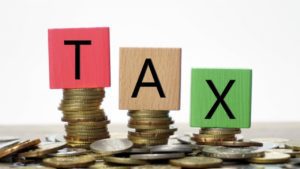
PJSC Ukrzaliznytsia in the first half of 2019 repaired 45 electric trains and 18 diesel trains at their depots, while six electric trains and one diesel train were overhauled.
As a press service of the enterprise reported on Wednesday, by the end of 2019 the Ukrzaliznytsia is going to repair another 50 electric train sets and 15 diesel train sets.
As reported, Ukrzaliznytsia plans to launch a pilot project to upgrade commuter trains in Zaporizhia and Dnipropetrovsk regions, asking Kyivpastrans to allocate UAH 500 million for their renewal.

Kyiv-based state-owned Ukreximbank’s net profit in January-June 2019 amounted to UAH 862.153 million, which is 27% more than for the same period in 2018 (UAH 679.127 million), the bank said in a statement on its website.
According to the report, the bank’s net interest income for the first half of 2019 decreased by 10.5% compared to the corresponding period last year, to UAH 1.003 billion, while commission income increased by 13.7%, to UAH 530.914 million.
Assets since the beginning of 2019 have shrunk by 6.2%, to UAH 151.661 billion, loans issued to customers decreased by 7.5% to UAH 67.008 billion.
Bank liabilities from the beginning of this year decreased by 6.3%, to UAH 143.582 billion.
The bank’s charter capital in the first half of the year remained at UAH 38.730 billion, while its total equity capital decreased by 4.3%, to UAH 8.078 billion.
Ukreximbank, wholly owned by the state, was created in 1992.
It ranked third among 77 banks operating in the country in terms of total assets (UAH 232.798 billion) as of April 1, 2019, according to the National Bank of Ukraine.

The State Tax Service (STS) of Ukraine in July 2019 managed to ensure UAH 5 billion more in tax payments to the national budget, however, total tax payments collected by the State Fiscal Service [which consists of the tax and customs services] is UAH 14 billion lower than the target figure, STS Serhiy Verlanov said.
“According to a recent update, the tax service collected UAH 5 billion more in July [than it was planned],” Verlanov said at a press briefing in Kyiv on Thursday.
Yet, he said, funds collected by the customs unit is lower than the target.
“Yes, we’ve got questions to ask the customs,” he said.

The former deputy head of the Presidential Administration under ex-President Viktor Yanukovych, Andriy Portnov, has said Ukraine’s State Bureau of Investigations (SBI) has opened a criminal case to probe facts of embezzling funds from state-run Concern Ukroboronprom and siphoning them off into offshore accounts, and suspects in the case “could include dozens of ex-President Poroshenko’s allies.”
“Let me inform you about a new criminal case, which can incriminate dozens of people among Poroshenko’s associates. The SBI yesterday officially registered the case and began its investigation,” Portnov said on Facebook on Thursday.
Portnov said Poroshenko gave direct instructions to ex-National Bank of Ukraine Chairwoman Valeriya Gontareva, and the NBU board on January 19, 2016, revoked NBU decisions on hard currency control involving foreign economic activities, establishing that payments of Ukroboronprom to offshore accounts could be used for making prepayments without NBU hard currency controls and limits.
“This enabled the theft of several billion hryvnias from Ukraine’s army, hiding behind official decisions made by the NBU,” Portnov said.
Interfax-Ukraine has not received confirmation from the SBI regarding Portnov’s statements.

A new composition of the Ukrainian government will be endorsed shortly after the Verkhovna Rada, Ukraine’s parliament, starts work, the Ukrainian president’s representative to the government Andriy Gerus, said on Thursday. “Everything will be very quick. I think a new government will be formed on the first or second day of the parliament’s work. I am convinced of that,” Gerus said on the TV channel 1+1.
He said he expected the parliament to gather for its first meeting within the first days of September.
Asked whether the Holos party could join a coalition with the parliamentary majority, Gerus replied, “If Holos wishes to join, it could enter the coalition on the first day of the new parliament.”
Parties that might wish to join a future coalition could reach a number of agreements in August so as not to lose time later, he said.
“We don’t have too much time. The country needs quick change so that the public feels a positive effect from reforms that need to be carried out quickly,” Gerus said.
Quick decisions and steps will be made every day so as to move ahead, he said.

The number of Green Card international insurance contracts signed by the member companies of the Motor (Transport) Insurance Bureau of Ukraine (MTIBU) increased by 48.2% in January-June 2019 compared with January-June 2018, to 501,449.
According to the MTIBU’s website, the amount of accrued insurance premiums for this period rose by 37.53% compared to the same period last year, to UAH 883.538 million.
At the same time, the amount of compensation paid on claims grew by 14.88%, to EUR 6.869 million, while the number of claims paid decreased by 2.26%, to 2,550.
The MTIBU is the only association of insurers that carry out compulsory insurance of vehicle owners’ civil liability for damage caused to third parties. Its members are 51 insurance companies, including ten full bureau members having the right to sign Green Card agreements.